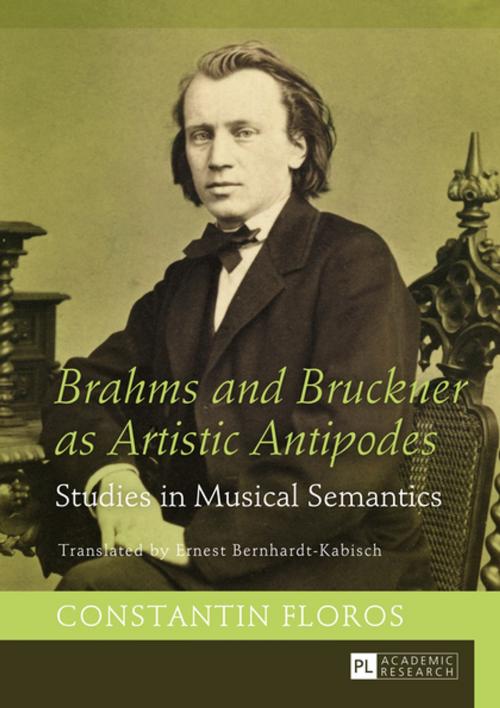Brahms and Bruckner as Artistic Antipodes
Studies in Musical Semantics
Fiction & Literature, Literary Theory & Criticism, Theory, Nonfiction, Entertainment, Music, Theory & Criticism, History & Criticism, Reference| Author: | Constantin Floros | ISBN: | 9783653971620 |
| Publisher: | Peter Lang | Publication: | June 26, 2015 |
| Imprint: | Peter Lang GmbH, Internationaler Verlag der Wissenschaften | Language: | English |
| Author: | Constantin Floros |
| ISBN: | 9783653971620 |
| Publisher: | Peter Lang |
| Publication: | June 26, 2015 |
| Imprint: | Peter Lang GmbH, Internationaler Verlag der Wissenschaften |
| Language: | English |
In the last third of the 19th century Brahms and Bruckner were regarded as antipodes. Is this perception really true to the historical reality or had their contemporaries overestimated the «dimension of their distance», as argued later? Both wrote autonomously conceived music, both held on to traditional forms, and both rejected program music. To find an answer to this question, part I tries to elucidate Brahms’ relation to Bruckner in its biographic, historical, artistic and art-theoretical aspects. At the center of the second part, whose subject is Brahms’ early work, is the question whether Brahms was indeed an autonomously working composer. The topic of the third part is a taboo of Bruckner research: Bruckner’s relation to program music.
«The second and third part of the study achieve new insights. With a consistent analysis of biographic data and, simultaneously, a careful scrutiny of musical facts (increased experience in assessing the music of the 19th century), Floros gains convincing interpretations.»
(Friedrich Heller about the German edition of the book)
«The book is the result of Floros’s intensive study of Mahler, during which he found hitherto undiscovered clues to the interpretation of Brahms’s and Bruckner’s work. Most of the borrowings discussed confirm differences between the two composers in both ideologies and musical heritage. Long thought to be ‘absolute’ music, Bruckner’s compositions carry significant semantic meaning when the composer desired.» (Musical Borrowing)
In the last third of the 19th century Brahms and Bruckner were regarded as antipodes. Is this perception really true to the historical reality or had their contemporaries overestimated the «dimension of their distance», as argued later? Both wrote autonomously conceived music, both held on to traditional forms, and both rejected program music. To find an answer to this question, part I tries to elucidate Brahms’ relation to Bruckner in its biographic, historical, artistic and art-theoretical aspects. At the center of the second part, whose subject is Brahms’ early work, is the question whether Brahms was indeed an autonomously working composer. The topic of the third part is a taboo of Bruckner research: Bruckner’s relation to program music.
«The second and third part of the study achieve new insights. With a consistent analysis of biographic data and, simultaneously, a careful scrutiny of musical facts (increased experience in assessing the music of the 19th century), Floros gains convincing interpretations.»
(Friedrich Heller about the German edition of the book)
«The book is the result of Floros’s intensive study of Mahler, during which he found hitherto undiscovered clues to the interpretation of Brahms’s and Bruckner’s work. Most of the borrowings discussed confirm differences between the two composers in both ideologies and musical heritage. Long thought to be ‘absolute’ music, Bruckner’s compositions carry significant semantic meaning when the composer desired.» (Musical Borrowing)















